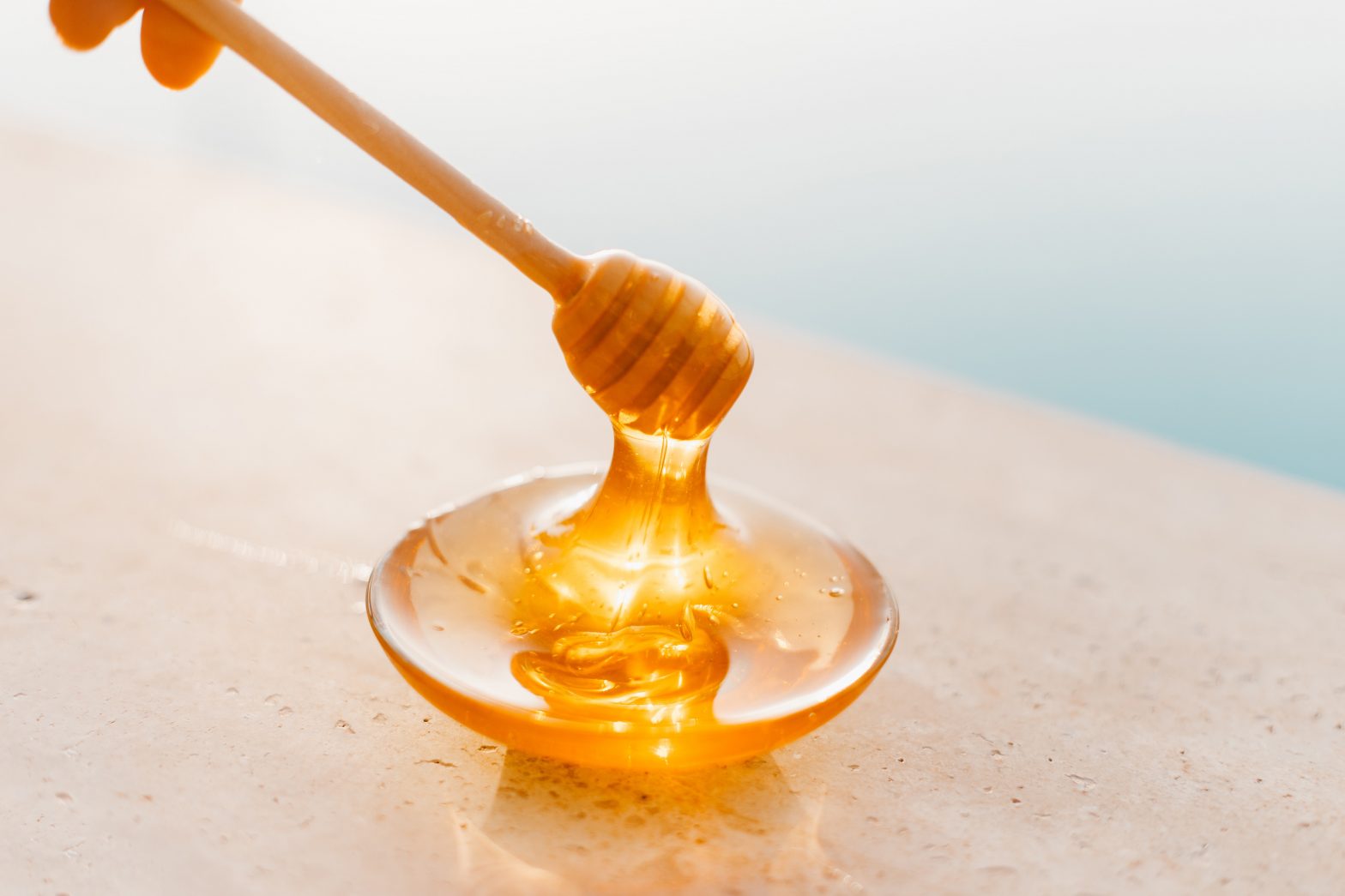Honey for brighter skin
Honey adds moisture or humidity naturally and treats dull skin, restoring its natural glow. Since raw honey crystalizes over time, the tiny granules act as a gentle exfoliant. It has toning, smoothening, brightening and depigmentation properties.
Honey for brain
There may even be some cognitive benefits to raw honey. The polyphenols in honey may be able to counter inflammation in the hippocampus, the part of the brain involved in memory.
The antioxidant and anti-inflammatory effects can benefit many parts of the body, including brain health.
Honey for Antibacterial and antifungal properties
Sources has shown that the propolis in raw honey has antifungal and antibacterial properties.
The potential for both internal and topical treatments using raw honey is significant. Honey’s effectiveness as an antibacterial or antifungal varies depending on the honey, but some varieties are being studied for specific therapeutic uses such as against Candida-associated infections.
Honey to sooth sore throat and cough
Honey is an old sore throat remedy that soothes the ache and can help with coughs. Add it to hot tea with lemon when a cold virus hits.
A 2016 study also suggested that the antibacterial and anti-inflammatory properties are effective for helping a sore throat.
Owing to its antimicrobial activity, honey is used to treat coughs. It is commonly used to relieve sore throat, allergy symptoms or for asthmatic relief.
For sound sleep a spoonful of honey helps in uninterrupted sleep, as it causes a slow, steady spike of insulin, which converts to serotonin and melatonin, two chemicals that help you fall asleep.
Honey for digestive issues
Honey is sometimes used to treat digestive issues such as diarrhea, though research to show that it works is limited. It may have potential as a treatment for Helicobacter pylori (H. pylori) bacteria, though, a common cause of stomach ulcers.
It also contains beneficial prebiotics, meaning it nourishes the good bacteria that live in the intestines, which are crucial not only for digestion but overall health.
Honey for weight loss
Honey’s low glycemic load offers benefits for appetite-reduction. Founder of the honey diet, Mike McInnes discovered that athletes who ate foods rich in fructose such as honey burnt more fats and had increased stamina levels. One of the best ways to consume honey for weight loss is by having a teaspoon of honey before bedtime. Doing so will help the body burn more fat during the early hours of your sleep.
Improve heart health
Honey may help to lower blood pressure, regulate heartbeat, prevent the death of healthy cells, and may improve heart health. Raw honey contains propolis, a type of resin that bees produce, which helps to improve cholesterol and triglyceride levels. “Small studies in humans show honey’s antioxidants could help improve cholesterol levels,” reports heart.org. However, honey should be consumed in moderation and under medical guidance to treat illnesses.
Honey for cancer
Honey is a natural immune booster. Its role in inhibition of cell proliferation, induction of programmed cell death, and cell-cycle arrest is of great interest in cancer treatment. Taken in moderation, under doctor guidance, and as a healthier alternative to sugar, NCBI has listed its beneficial effects on breast cancer, liver cancer, colorectal cancer, prostate cancer, and several other cancers.
Honey for diabetics
Honey has the lowest glycemic load — the measure of the impact of a given amount of food on blood glucose levels after it is eaten. Taken in moderation, the antioxidants in honey protect against metabolic syndrome and Type 2 diabetes. As per NCBI, for years, researchers have been conducting various animal studies, preclinical trials as well as RCTs to show the beneficial effects of honey on diabetes. “Anti-diabetic effects of honey are also explained by its ability to modulate adiponectin levels as well as its antioxidant capacity,” reports NCBI.
Honey for treating burns & wounds
Honey’s immunomodulatory property is relevant to wound repair. The antimicrobial activity in most honeys is due to the enzymatic production of hydrogen peroxide. However, non-peroxide honey (viz., manuka honey), displays significant antibacterial effects even when the hydrogen peroxide activity is blocked. Manuka Honey is a unique kind of Honey that is made in Australia and New Zealand by bees that pollinate the native leptospermum scoparium bush (also known as tea tree). Its mechanism may be related to the low pH level of honey and its high sugar content (high osmolarity) that is enough to hinder the growth of microbes, as per National Center for Biotechnology Information (NCBI), part of the US National Library of Medicine. According to Ayurveda, ghee mixed with honey can be applied on wounds, blisters and inflammation to effectively cure them.
Honey has anti aging benefits
The probiotics, antioxidants, nutrients and enzymes in honey work together to nourish and plump the skin. While it doesn’t eliminate wrinkles, it reduces their appearance. The antioxidants help in reversing sun damage.


